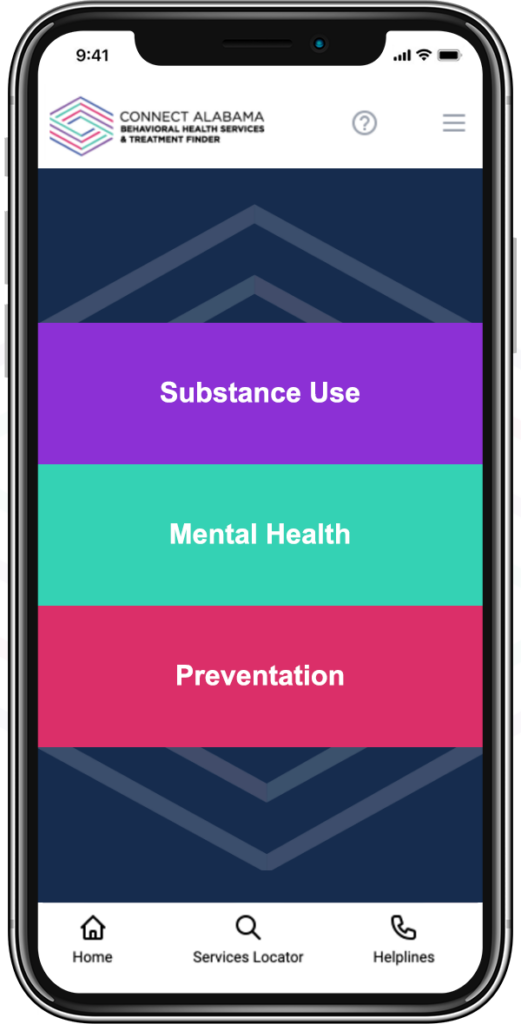Wellness programs use evidence-based strategies to improve a person’s mental and physical health. While wellness program initiatives can help manage workplace stress, they also help to improve employee health outside the office.
Such programs emphasize proactive care that focuses on the prevention of symptoms rather than treating them. In this article, we’ll discuss workplace wellness programs in Alabama and their role in employee satisfaction and overall health.
Need more resources? Download the Connect Alabama app!


Download the Connect Alabama App
What Are Wellness Programs?

-
How Wellness Programs Promote Better Health
Wellness programs are typically well-structured and provide a clear path toward achieving specific outcomes based on a person’s needs. These kinds of programs often include milestones to help participants track their progress and offer rewards to encourage ongoing participation and help prevent relapse.
They focus on areas such as:
- Promoting healthy eating habits and weight management
- Managing stress and enhancing overall health and wellness
- Promoting physical activity and fitness
- Disease prevention programs and management of chronic illnesses
-
The Benefits of Participating in Wellness Programs
Many wellness programs are free or low-cost, which helps make them available to more people. Here’s how such programs can help improve your overall health and quality of life.
- Lower stress levels and improved mental health
- Increased energy and improved physical wellness
- Access to valuable resources for chronic disease prevention
- Stronger community connections and support networks
Featured Wellness Programs in Alabama

-
Scale Back Alabama
Scale Back Alabama is a statewide wellness program for people 18 and older. The main advantage is that it’s free and easy to access, which helps participants adopt healthy habits, with a particular emphasis on exercise and diet. If you’re looking for guidance on setting and tracking your health goals, this is a great option to start with.
Scale Back Alabama is designed for individuals and groups, which makes it an excellent choice for employers who want to promote healthy living among their employees. By encouraging healthy habits, the program can increase employee morale and overall job satisfaction and even help reduce turnover.
-
PEEHIP Wellness Program
PEEHIP is free for public education employees and can be accessed during working hours. The program is also available to retirees in public education.
PEEHIP provides various services, including health screenings to detect potential issues and preventive care options. The program provides referrals for additional checkups and educational resources for long-term health.
-
Blue Cross Blue Shield Wellness Initiatives
You and your spouse can use your health insurance plan to access services offered by the Blue Cross Blue Shield wellness program. Through these services, you get the tools and support you need to help live a healthier lifestyle, including gym discounts, stress management programs, and nutrition counseling to support weight management, immunizations, and chronic illness prevention. The program also offers support for people struggling with tobacco addiction.
-
Well Woman Alabama
Well Woman Alabama is a wellness program specifically designed for girls and women 15 to 55 to promote healthy living and early disease detection. The program offers preconception health planning and counseling services to help women understand the risks of poor health behaviors. To enroll, participants must reside in one of the counties where the program is available.
Counties include:
- Barbour
- Bullock
- Butler
- Covington
- Dallas
- Henry
- Lowndes
- Macon
- Marengo
- Montgomery
- Russell
- Wilcox
-
Local Government Health Insurance Board Wellness Program
The Local Government Health Insurance Board offers a voluntary wellness program for state employees, focusing on mental health support, fitness, and nutrition for better productivity.
One of the standout features is the availability of house calls that enable state employees to consult health professionals from the comfort of their homes. The program also includes a gym membership to help with weight and stress management.
How to Choose the Right Program for You

-
Identifying Your Health Goals
You can start by defining your wellness challenges and whether you’re focusing on physical health, mental health, or both. Once you’ve identified your primary goal, break it down into smaller, more specific objectives to help you stay focused.
If your goal is to improve physical well-being, you might focus on weight loss, muscle building, or cardiovascular fitness. For mental wellness, you can explore stress reduction, mindfulness, or mental clarity.
Next, decide on the type of support you need from a program. Some people do really great with personal coaching, while others prefer self-guided or group activities.
-
Questions to Ask Before Joining a Program
After defining your health goals, ask the following important questions before making your final decision:
- Is the program free, or what is the cost?
- How are the sessions delivered? In-person, online, or a combination?
- Will you receive coaching, or is the program self-directed?
- Does the program include fitness or medical assessments?
- How much time will you need to dedicate to the program daily, weekly, or monthly?
- How do I track my progress?
-
Balancing Accessibility and Cost
Ensure the program is available in your area and fits your budget. To find free or affordable programs, start by conducting an online search based on your location. Narrowing your search to Alabama will help eliminate programs that may not be in your state.
Once you have a list of programs that are available to you, use the questions mentioned earlier to further refine your options.
When evaluating health care costs, keep in mind three main categories of wellness programs:
- State-funded wellness programs
- Employer-sponsored wellness programs
- Community health benefits
In the following sections, we’ll dive deeper into what each of these types offers to help you make an informed decision on the program that best suits your needs.
Where to Access Wellness Programs in Alabama

-
Community Centers and Local Organizations
Community centers bring people together through fitness classes, nutrition workshops, and health screenings, which allow them to build relationships while improving their well-being. County health departments often organize these gatherings, but the programs are also offered through organizations like the YMCA and various faith-based groups. Here are some wellness initiatives in Alabama.
-
Live Well Alabama Thriving Communities
The goal of this program is to make active living and healthy eating more affordable and attainable across Alabama. For starters, Thriving Communities plans to expand voucher programs that help individuals afford fresh fruits and vegetables. This effort complements prescription programs that make healthy foods readily available at food pantries, municipal buildings, hospitals, parks, recreational facilities, and other community spaces where food is served.
In addition, Thriving Communities works closely with local stakeholders to develop transportation action plans that enhance the safety and appeal of walking and biking. The organization is also actively involved in early care and education initiatives, creating programs that promote breastfeeding to support healthier children.
-
Live HealthSmart Alabama
This initiative addresses four key areas of healthy living: education, nutrition, prevention and wellness, and physical activity. For starters, the program has a health education library to help employees, peers, teams, and communities make informed decisions about their well-being.
When it comes to nutrition, Live HealthSmart Alabama has a mobile market with affordable fresh produce, proteins, dairy, and pantry staples. Similarly, you can download recipes on the website and watch live cooking demos at market stops. The initiative also has a mobile wellness van that offers free comprehensive screenings.
Additionally, Live HealthSmart Alabama encourages physical activity through coaching, counselling, and community-driven efforts like walking clubs to help people stay active and reduce sedentary habits.
-
Huntsville Hospital Wellness Centers
This hospital-operated wellness facility has a heated pool, whirlpool, dry sauna, steam room, group exercise room, free weight area, and a wide selection of strength equipment and cardiovascular machines. Members can also get an assessment of their strength, flexibility, endurance, blood lipid profile, aerobic capacity, and body composition to determine their fitness levels and help them set achievable goals.
The wellness centers are staffed with registered dietitians, certified trainers, and exercise physiologists who provide expert support to help members reach their health and wellness goals.
-
Cullman Regional Medical Center
The fitness center is well-equipped with cardio equipment, weight machines, walking tracks, and a heated pool for water aerobics. Individuals aged 65+ can also join the SilverSneakers® Fitness Program, which provides personalized health and wellness support.
-
YMCA of South Alabama
The YMCA offers wellness programs to people of different ages, including children, teens, adults, and seniors. Apart from improving physical wellness with swimming, basketball, soccer, and other sports, the YMCA offers outreach programs and support groups as part of its community engagement. If you have a limited or fixed income, you might qualify for financial assistance through the Y CARES program.
-
Employer-Sponsored Wellness Programs
Plenty of companies recognize that healthier employees are more productive, engaged, and less likely to miss work because of illness or burnout. As such, they offer employee wellness programs to help their teams cultivate healthier lifestyles.
Employee assistance programs may include:
- Fitness classes
- Mental health resources
- Gym membership reimbursements
- On-site and off-site health clinics
- Health fairs
- Weight management programs
- Disease management support
- Smoking cessation programs
- Health education
If you’re starting a new role or interviewing, ask how the company takes care of employee well-being. Wellness offerings make a big difference in managing workplace stress and maintaining your overall health.
-
Nonprofit and State-Funded Initiatives
Non-profit and state-funded initiatives offer free or low-cost wellness programs, with a key focus on:
- Promoting overall health and wellness
- Advocating for mental health awareness and stress reduction
- Supporting disease prevention initiatives
- Providing accessible fitness and wellness resources
Nonprofit and state-funded wellness programs in Alabama include:
- The Wellness Coalition
- United Way of Central Alabama
- Cancer Wellness Foundation of Central Alabama
- Alabama Wellness Alliance
- Alabama Workforce Stabilization Program
Tips for Maximizing the Benefits of Wellness Programs

-
Creating a Routine Around Program Activities
To get the most out of a wellness program, try making it part of your daily routine. For example, you can set reminders on your phone for mental health check-ins or wellness screenings to stay consistent.
You could also simplify healthy eating by creating a meal plan tailored to your goals. Consider consulting a nutritionist for personalized guidance.
Additionally, prioritize mental wellness by blocking out time for self-care, whether it’s meditation, therapy, or simply unplugging from your devices, social media, or other stressors.
-
Engaging Family and Friends in Wellness Goals
Personal development can feel overwhelming, and it’s easy to lose motivation as you go. However, a little support helps to keep you accountable and makes the process more enjoyable.
You can invite friends or family who share your health interests to join you in physical exercise, meal prep, yoga, and other wellness activities. If you don’t have like-minded people in your circle, consider joining local wellness groups, fitness classes, or online communities focused on personal growth, health, and mindfulness. You could also get structured guidance from professionals such as personal trainers or nutritionists.
-
Tracking Your Progress Over Time
Tracking your progress allows you to see whether your time and effort are truly paying off. You can start by clearly defining your goals and identifying key performance indicators (KPIs) that align with your program.
If your focus is on physical health, you can track metrics like weight, muscle gain, sleep quality, and endurance. For mental health, you could monitor mood fluctuations, stress levels, anxiety patterns, and overall emotional well-being.
Tools like tracking apps, journals, or even working with an accountability partner can help you stay organized and motivated throughout your journey.



